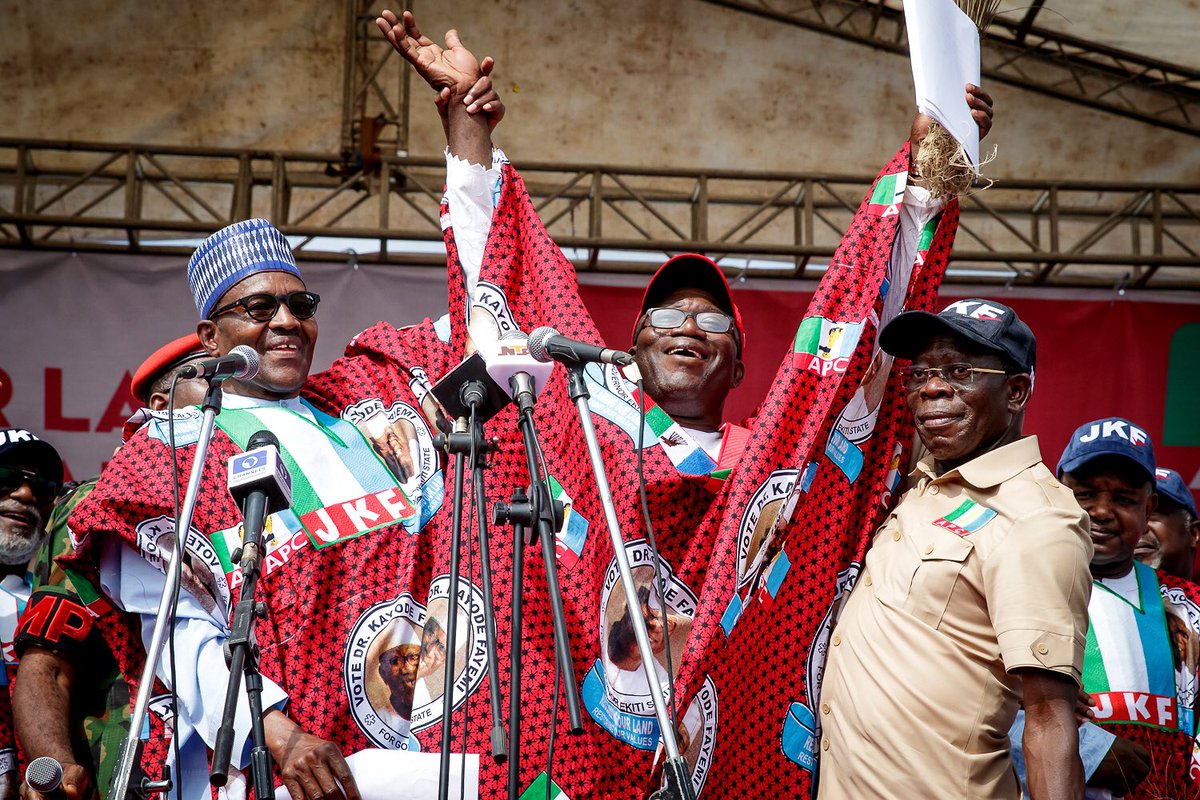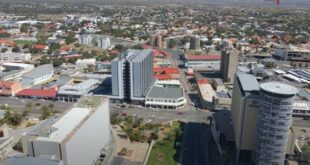In the run-up to Nigeria’s next general polls in 2019, the country’s political parties have started building alliances to fight an electoral battle that many analysts are already dubbing a watershed in the country’s democratic experience.
Twenty-four hours after a group of 38 parties, led by the biggest opposition party People’s Democratic Party (PDP), announced the formation of the Coalition of United Political Parties (CUPP) to wrest power from President Muhammadu Buhari, another group of 20 political parties on Tuesday joined forces with the ruling All Progressives Congress (APC) to form the Coalition of Progressives Political Parties (CPPP)
Leaders of political parties, such as African Democratic Congress (ADC), Social Democratic Party of Nigeria (SDP), National Conscience Party (NCP), Labour Party, and a host of other newly registered parties, signed a Memorandum of Understanding forming CUPP on Monday in the nation’s capital Abuja.
The political parties in the pro-Buhari CPPP which met in Abuja on Tuesday include All Progressives Congress (APC), Accord Party, Peoples Democratic Movement (PDM), United Progressive Party (UPP), Advanced People’s Democratic Alliance (APDA), Hope Democratic Party (HDP), Democratic People’s Party (DPP) and Unity Party of Nigeria (UPN).
There are 68 registered political parties in Nigeria and the Independent National Electoral Commission is considering the application for registration of about 138 others. Most of the parties are however what Nigerians call ‘briefcase parties’ as they lack any appreciable influence in the country. The major parties with any considerable weight are APC, PDP and APGA, which has not joined any of the alliances.

Analysts say the alliances indicate that the presidential election will be a referendum on Buhari’s performance since he became president in 2015. The nation is sharply divided on the president, who has signified that he would seek a second term.
Nigeria is currently beset by many problems, chief of which is insecurity caused mainly by the activities of Fulani herdsmen who have been blamed for many massacres in the northern Nigerian states of Adamawa, Benue, Kaduna, Plateau and Taraba. The pastoralists, who are also held responsible for killings in other parts of the country, are believed to be treated with kid gloves by Buhari, who is not only a Fulani himself but also a patron of the association of herdsmen before coming to power.
The Nigerian economy is also in a very bad shape with inflation having eaten deep into the pockets of citizens. While Buhari alone cannot be held responsible for the economic crisis, mainly caused by the fall of crude oil price in the world market, his management of the situation has made the problem worse, his critics say.
Buhari has also not delivered on his avowed fight against corruption as only members of the opposition PDP are mainly charged to court while indicted members of the ruling APC are spared.
Buhari’s supporters however believe the president is doing his best in the circumstances and assert that their candidate would be re-elected next year, a prospect that many critics say will sharply worsen an already bad situation of the country.
Kola Tella
 THE AFRICAN COURIER. Reporting Africa and its Diaspora! The African Courier is an international magazine published in Germany to report on Africa and the Diaspora African experience. The first issue of the bimonthly magazine appeared on the newsstands on 15 February 1998. The African Courier is a communication forum for European-African political, economic and cultural exchanges, and a voice for Africa in Europe.
THE AFRICAN COURIER. Reporting Africa and its Diaspora! The African Courier is an international magazine published in Germany to report on Africa and the Diaspora African experience. The first issue of the bimonthly magazine appeared on the newsstands on 15 February 1998. The African Courier is a communication forum for European-African political, economic and cultural exchanges, and a voice for Africa in Europe.
































